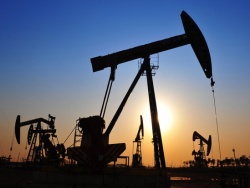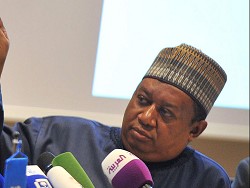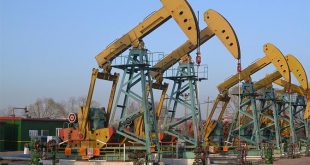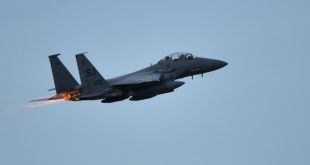
The organization of countries — exporters of oil at a meeting in Vienna to elect a new leader. They became the Nigerian Mohammed Barkindo, formerly head of the Nigerian National Petroleum Corporation. Barkindo will take office August 1, succeeding current Secretary General Abdallah Salem al-Badri (Libya), who holds the post since 2007. OPEC has not been able to elect a new leader, as member countries of the organization were unable to agree unanimously about the candidates. Interestingly, Mohammed Barkindo has headed the OPEC, and held the position of General Secretary just before al-Badri.
Previously, as candidates for the position of chief administrator of the cartel of the media was also called Ali Rodriguez from Venezuela and two candidates from Indonesia: former Deputy Minister of Finance Mahendra of Siregar and Minister of energy Suderman said.
The question of electing the Secretary-General is the only solution which we accepted OPEC. As for the oil market, the cartel once again let things slide.
However, OPEC itself said earlier that the question of freezing the level of oil production at the meeting on 2 June will not rise. But just before the beginning of the session, it was reported, what level of production will be one of the topics discussed.
First, it was supposed to consider Iran’s proposal on personal quotas — the Islamic Republic of Iran plans to further increase its oil production, bringing it to 4 million barrels per day (now about 4 million Barr.). But the issue of quotas in the end and was not discussed.
In addition, with an unexpected initiative by Saudi Arabia. According to The Wall Street Journal, the Saudis have offered to set production quotas of OPEC countries at the level of 32.4 million barrels per day and promised in this case to fix their own oil production at current levels. Formally, OPEC quotas remain at 30 million barrels a day, although at the last meeting of the cartel, in December 2015, it was decided to adhere to the actual level of production at 31.5 million barrels.
But this decision has not been fulfilled. According to the OPEC, in April, the country organizations had been mined in the entirety of 32.44 million barrels a day.
Thus, the proposal of Saudi Arabia was meant only to fix the actual production level, but it is not gone. The analyst “Uralsiba” Alexey Kokin notes that last December quota were de facto abolished, and now the Saudis offered to return to the system of limits on production.
In Russia, the incapacity of the organization is no surprise. “OPEC may not be the hot trace, because the Ghost leaves no trace. Organizations that have such contradictions, can not be called an organization and the more the cartel”, — said the press-Secretary of “Rosneft” Mikhail Leontiev (quoted by TASS).
OPEC, in principle, not capable of producing any decision regarding the level of production due to internal conflict, which began 2.5 years ago, reminds the expert of the Union of oil and gas producers of Russia Rustam Tankan. Then inside the cartel was split and organized two conditional parties: countries that have oil production costs of oil are low and who are willing to tolerate low oil prices in the fight for market share (this unit is headed by Saudi Arabia, and it is adjacent Russia, though not a member of OPEC). The second unit is a country, where either the high cost of production (such as Venezuela), or reduced oil production because of depletion of fields (Algeria).
Players included in this unit are extremely interested not in the share market, and in the growth of prices.
“Due to internal differences, OPEC over the past 2.5 years are unable to make any real decisions — the Tankan. — I believe the organization will soon cease to exist not only in fact (de facto cartel collapsed with the beginning of an internal split), but also legally.”
The idea is to freeze the oil first appeared back in mid-February, the initiators were Saudi Arabia, Russia, Qatar and Venezuela. It was assumed that the OPEC countries and a number of producers outside the cartel, will fix the production levels in January 2016. When the demand is supposed to reduce the excess supply on the world market and push prices up. However, the talks on 17 April in Doha, Qatar, on the issue failed. Iran has refused to freeze the prey, as only in January came out from under the sanctions the US and EU that restrict including exports, and hence oil production. After the failure of Iran has announced its opposition and the Saudis. According to them, the freeze must apply to all.
Interesting in this matter the position of Russia. Russian Deputy Prime Minister Arkady Dvorkovich said Thursday that Russia is ready to support non-mining — again, if all the OPEC countries would go for it. However, as recently as last weekend, the Russian Minister of energy Alexander Novak said that the idea of freezing is no longer relevant. According to the Minister, rates the “bounced high enough”.
Abdalla Salem al-Badri on Thursday also noted that the oil market is improving and bad period, in his opinion, behind. “Now I’m waiting for the best prices,” said al-Badri. Oil prices really have increased significantly since the beginning of the year, they are now teetering at $50 per barrel, whereas in January it dipped below $29.
But talk about the market recovery and to enjoy higher prices yet.
Before the meeting of OPEC Minister of oil and mining of Venezuela, Eulochio del Pino said that the current situation on the world oil market caused by the fact that he began to balance, but only by coincidence in the last three or four months. Del Pino recalled the recent fires in areas of oil Sands in Canada, about the strike of oil workers of Kuwait and about disruptions in oil supplies from Nigeria, caused by the constant attacks of radical groups.
All this, according to del Pino, has led to the fact that world oil “froze without freezing”.
The Venezuelan Minister noted that now it is possible to count on growth in global demand by 2 million barrels, but in the future the situation may change. “What we’ll do to restore prices next winter?” — asks del Pino. Alexey Kokin believes that the Venezuelan official rights. According to the analyst, seeing now the rise in prices has happened too fast and should wait for correction. “Production in Canada and Kuwait restored, the situation in Nigeria is changing for the better, plus plans to increase production of Iraq”, says Kokin.
In this regard, according to experts, you should wait for a pullback to at least $45 per barrel.
However, the global trend to lower rates of production growth and accumulated reserves of oil are saved, so that by the end of 2016 or early 2017, according to Kokina, the price will return to $50.
The price of a barrel of North sea oil Brent (it tied the price of Russian Urals) on expectations from the OPEC meeting on Tuesday to break the mark of $50, but then again went below this level. However 19.05 GMT on the Intercontinental exchange (ICE) in London, a barrel cost $50,07 (+0,699% since the start of trading).







